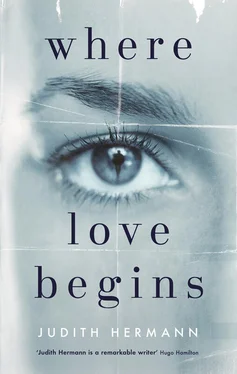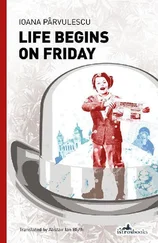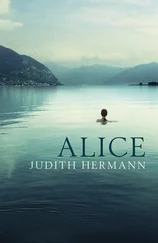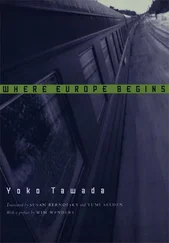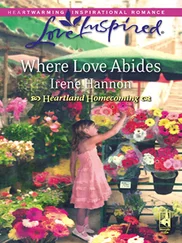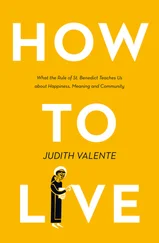It’s already getting dark a little earlier, Paloma says. I’m afraid of the early dark; the summer is much too short.
Yes, Stella says, this summer has been short.
The phone rings dully in the basket with the bathing suits, towels, suntan lotion, and Stella takes it out carefully, reading the name of the policeman with the melancholy eyes on the display. She turns away from Paloma; Paloma keeps walking.
Hello, Stella says.
The policeman says, I’m standing in your house. It’s a nice house. Where are you; are you all right? Are you all right?
I’m all right, Stella says. She looks around her at the reeds, the dark lakeside landscape, the intense green tones. Ava and Paloma at the end of the path, waving. Stella waves back. She says, Why are you standing in my house.
She can picture the policeman in her kitchen. The table, Ava’s crayons, the little board with apple peels, cores, the lake pebble from Jason; are the beds made upstairs; is the bathroom neat; what could betray her; she pictures the policeman standing in her kitchen like a statue: a freeze frame. As if her entire life had been headed towards this one image.
He says, There was an argument here. An escalation. Someone called the police, and there was so much blood in your front yard that we thought something had happened to you. Do you understand me. Can you hear me?
Was the house broken into, Stella says. I understand you very well; I can hear you. Why are you standing in my house?
Your house was locked, and we broke in because we thought you were inside. We thought you were … injured, the policeman says; he says it very guardedly.
I am uninjured, Stella says. I’m not injured. I’m in the country, far away; I’m fine.
Well then, the policeman says. Mister Pfister is in the hospital. He’s not doing well at all. Did he smash his skull himself? Do you know anything about it? We’re having a new lock put in here. We’ll get back to you. Please stay where you are, if you can afford it. Will you do that?
Yes, Stella says, I’ll try. Several different images collide and separate again in her mind, making no sense. Where is Jason. Mister Pfister’s smashed skull looking like a bony bowl full of sooty leaves. Stella says, Is the house empty. I mean — was there no one in the house, was the house empty.
Yes, the policeman says, the house was empty. Well, let’s say — it was as empty as a lived-in house can be.
I can’t talk on the phone any more, Stella says. I’m going to hang up now.
The path ahead of her is deserted. Paloma and Ava must have turned off into the field. Stella stands there a while longer. It’s as if something had ended, as if something were beginning anew.
Later, Stella sometimes thinks about how powerful Jason’s blows must have been. What these blows were really all about. She’s thinking about this as she’s packing dishes, plates and cups, the cover of the sugar bowl and the sugar bowl, the teapot, the cereal bowls, the glasses with the floral pattern, wrapping them in newspaper, putting them in cardboard boxes, sealing the cardboard boxes and with a grease pencil writing the word Fragile on the top, over and over again — Fragile.
She comes to no conclusion.
She empties her desk, all the while still thinking about it; she puts the books she no longer wants to read into boxes, and other books that she still loves into different boxes, and she sorts her letters into files — Clara’s letters, the few precious letters from Jason, letters from people who are already dead — and, after lengthy hesitation, writes on the backs of the files: beautiful letters.
She thinks about it all until the man from the municipal utilities comes to the door and rings the bell; he’s come to read the electric and gas meters, and she stands next to him watching as he enters the numbers representing her use of heat and light on a form, as if it were the most ordinary thing in the world.
She packs up Ava’s things. She sets aside the things Ava has grown out of, puts the things she can still wear right now into the suitcase, and while Ava isn’t there she carts off the toys Ava doesn’t play with any more. She keeps all the stuffed animals. Carefully she detaches the mobile from the ceiling, folds up the princess dress and packs it even though it’s too small now. She saves all of Ava’s books. Her favourite book — that’s the blue door let’s see who lives there, we’ll just knock / someone home / seven monkeys / what do seven monkeys do / monkey business — she stands at the window in Ava’s room with the open book, wondering whether, while he was hitting out at Mr Pfister with the stick, Jason was thinking of her, whether Jason as he was landing all those blows was thinking of Stella.
She finds a drawing by Jason among Ava’s books. He had drawn Stella — as seen from Ava’s room — sitting on the chair in the garden at the edge of the meadow, Stella in profile in her grey dress and barefoot, her hair down and hands in her lap; at the bottom he had written the date and her name as if he wanted to be sure who she was. As if he never wanted to forget her.
*
As she steps out of the house, she can see Jason, a lover, bent over Mister Pfister. She doesn’t want to see it like that, but she does see it. She thinks about removing the three names from the mailbox with turpentine; she leaves them there.
*
She writes her last letter to Clara from this house sitting on top of a box in the emptied-out kitchen with the letter paper on her knees; she writes, Dear Clara, if I hadn’t caught your bouquet, everything might have turned out completely different; jasmine and lilac, do you actually still remember? I think it’s unfair that the connection between things can only be recognised and understood in retrospect. And on the other hand, I’m glad, I have a wild and confident heart. I’m about to hand in the keys; once I walk through this door I’ll never look back again, not once, I swear. And I think — where I’ll be tomorrow, today is already over. Take care of yourself! Think of me, your –
*
Left behind are the pencil lines marking Ava’s growth. Date and centimetres, a memory that exists only for Stella of an evening in March, of a winter day, of an afternoon with rain. The shadow on the wall where the bookshelf stood, the marks left by the picture frames in Jason’s room, that light spot on the banister where Stella supported herself morning after morning, going down to the kitchen to put the kettle on, to begin an ordinary day. Remaining are Ava’s little decals on the windowpane. The blue wall. The dried lavender tied with package twine on the windowsill, the little paper horse next to it. A shekel, a shell, a coin on the rim of the sandpit. Mullein, lupines.
*
Much later, as if from a great distance, Stella remembers the years in the development, that time in her life. The house, the rooms, the view of the open field from the kitchen window, the morning light and sky are locked inside a capsule, forever out of reach. She can see it all from the outside, but she can’t touch it, and she is surprised at how little she lacks. She lacks — nothing. Or only what she would be lacking anyway. Maybe it really is the present that counts, its light, irresistible weight; Stella is at home wherever she lives and wherever she sleeps. It is possible to leave places, to drop promises. She can still come out of the bedroom with her eyes closed, go down the stairs into the kitchen, and put the kettle on before she turns on the radio, and yet she feels no longing. This means she could leave again any time. Change is not a betrayal. And even if it were, it wouldn’t be punished.
*
Stella, Jason says, are you awake? Look out the window, if you can.
Читать дальше
